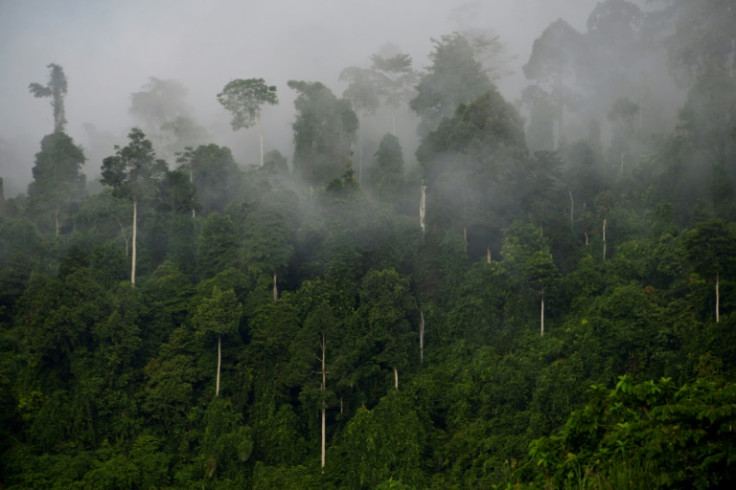
The world is "failing" on a pledge to halt and reverse deforestation by 2030, with global losses increasing last year, a group of NGOs and researchers warned Tuesday.
In 2021, leaders from over 100 countries and territories -- representing the vast majority of the world's forests -- pledged to stop and reverse forest loss by 2030.
But an annual assessment released Tuesday found global deforestation actually increased by four percent last year, and the world remains well off track to meet the 2030 commitment.
"That 2030 goal is not just nice to have, it's essential for maintaining a livable climate for humanity," warned Erin Matson, a lead author of the Forest Declaration Assessment.
Forests are not only key habitats for animal life but serve as important regulators of the global climate and carbon sponges that suck in the emissions human activity belches out.
However, deforestation last year was over 20 percent higher than it should have been to meet the leaders' pledge, with 6.6 million hectares of forest lost, much of it primary forest in tropical regions.
The assessment, overseen by more than two dozen environmental groups and research organisations, also warns that forest degradation remains a huge problem.
Degradation refers to a wide range of harms, including wildfires and biodiversity loss, which affect a forest's overall health.
"Data year over year does tend to shift. So one year is not the be-all, end-all," said Matson.
"But what is really important is the trend. And since the baseline of 2018 to 2020, we're going in the wrong direction."
The assessment was not universally gloomy, with about 50 countries deemed on course to end deforestation.
In particular, Brazil, Indonesia and Malaysia saw "dramatic reductions" in forest loss.
Those gains are at risk however, the report warns.
Indonesia's success was linked in part to a moratorium on deforestation, but there are concerns new legislation on job creation could weaken that commitment.
And in Brazil, while there has been renewed interest in protecting the Amazon, another key ecosystem -- the Cerrado savannah -- has instead become a target.
The report praised new rules introduced by the European Union intended to block the imports of commodities that drive deforestation.
But it called for stronger global action, including more money to protect forests, and the end of subsidies to sectors like agriculture that drive deforestation.
"The world is failing forests with devastating consequences on a global scale," said Fran Price, WWF's global forest lead.
"Since the global pledge... was made, an area of tropical forest the size of Denmark has been lost."
The report comes before countries meet for crunch climate talks next month.
But deforestation is likely to take a backseat to discussions on renewable energy and the future of fossil fuels.
"We want to see nature and forest high on the agenda. We're worried that they are not up there," Price said.




